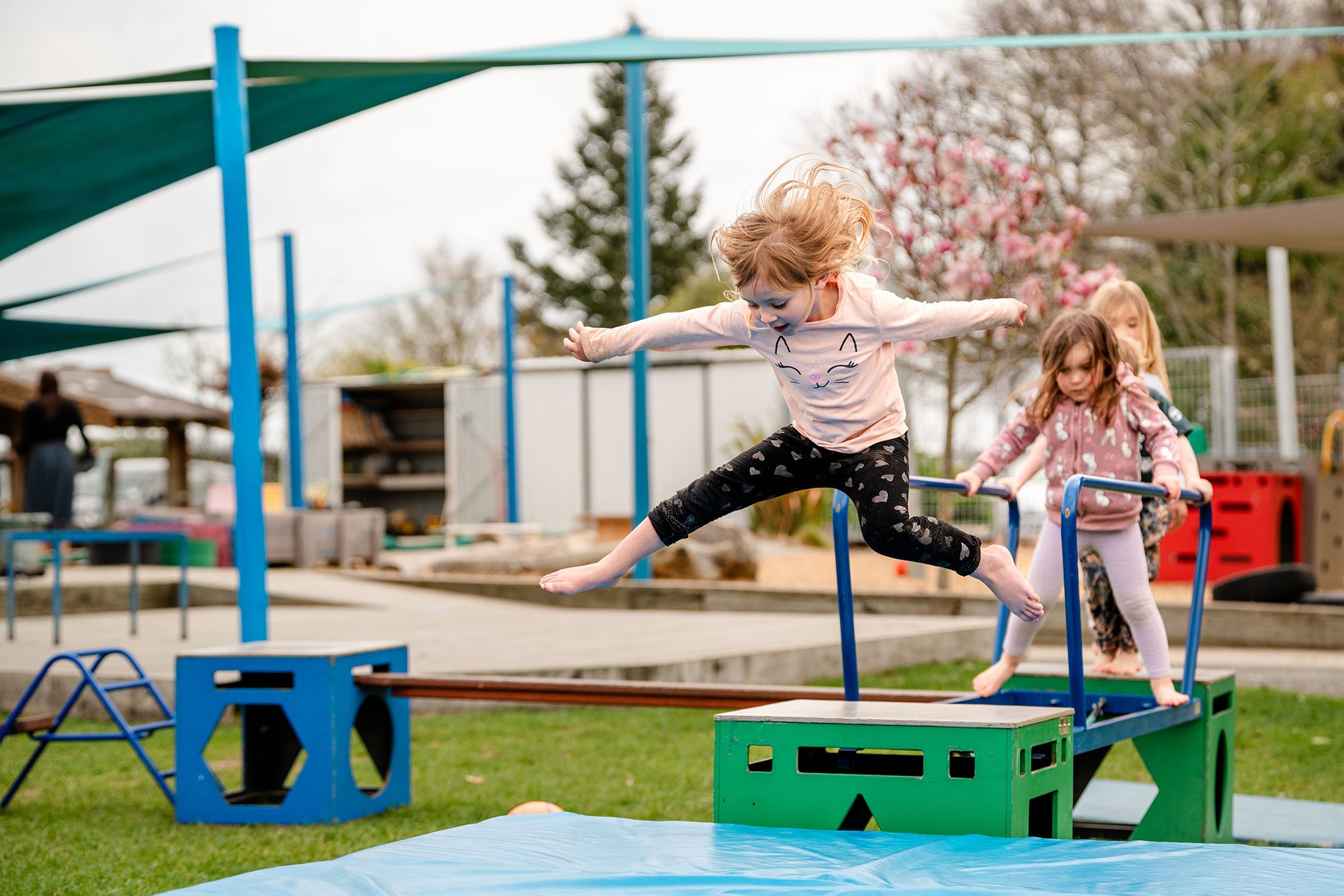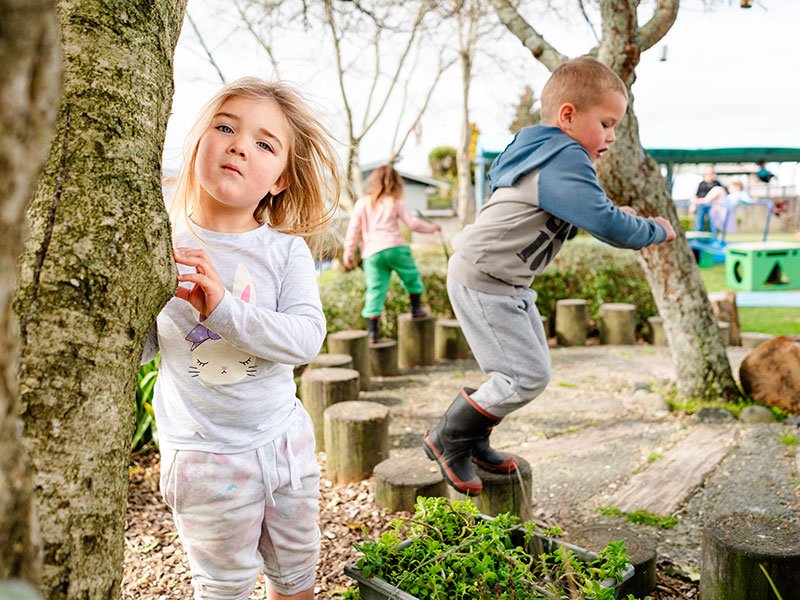
At Central Kids, tamariki learn through child-led play. It’s how they make sense of the world around them, build relationships, and grow the skills they’ll need for reading and writing later on.
To adults, play can sometimes look simple - even random. But what looks like ‘just play’ is often packed with powerful learning. Here are just a few ways tamariki develop early literacy skills through everyday play.
Running, jumping, swinging and digging
Gross motor skill development (the control of large muscle groups) is an important step that comes before tamariki learn fine motor skills (the control of small muscle groups), which are necessary for things like using scissors, holding a pencil or painting a masterpiece. Our playgrounds and large outdoor areas support learning through play!
Drawing, scribbling and painting
These activities help tamariki strengthen their hand and finger muscles, improve coordination and build the fine motor skills they’ll use when learning to write.
Pretend play - like shops, doctors or superheroes
Through imaginative play, tamariki tell stories, experiment with new words, and learn how conversations work. They begin to organise their ideas and understand how to communicate them clearly.
Singing waiata and nursery rhymes
These rhythmic and repetitive songs help tamariki tune into the sounds of language. They learn about rhyme, rhythm and how different sounds fit together - important foundations for both reading and writing.
Building with blocks or puzzles
Play that involves shapes, patterns and sequences helps tamariki learn to spot similarities, differences and order - the same kinds of thinking needed to recognise letters and words.
Sharing pukapuka (books) with kaiako or whānau
Reading together helps tamariki understand that print has meaning, that stories have structure, and that reading is a shared and enjoyable experience.
Literacy begins with curiosity, creativity and connection
There’s no rush to pick up a pencil or fill in a worksheet. Literacy begins with curiosity, creativity and connection - all the things play offers in abundance.
At Central Kids, we believe play is the natural pathway to literacy. Through play, tamariki build a strong foundation for lifelong learning.
If you'd like to learn more about the research that supports our approach to play and brain development, check out these articles from neuroscience educator Nathan Wallis.

